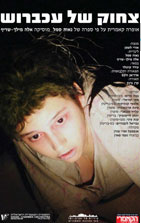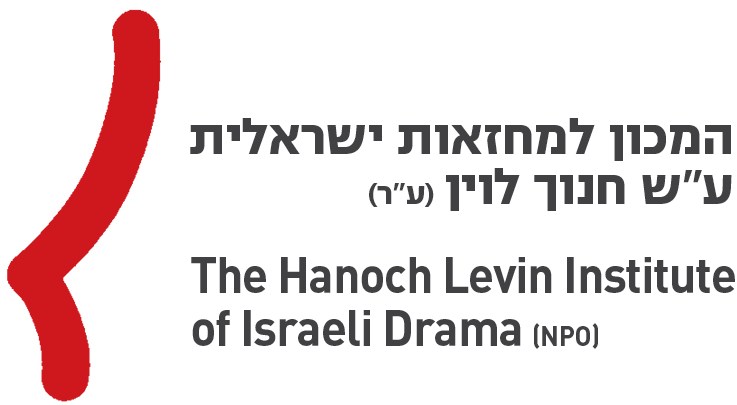And the Rat Laughed /
Nava Semel
ליברית לאופרה
 | |
|
Drama
Fantasy
Poetic Drama
Subject: Text in: |
And the Rat Laughed is an original opera in Hebrew based on Nava Semel’s accliamed novel from 2001. The music was composed by Israeli comopser Ella Milch-Sheriff. This novel dealing with the horrors of the Holocaust and the influence of this harrowing chapter of human history was highly praised for its courage in employing original and unconventional literary devices.
This is the story of a nameless five-year-old girl, as told to her granddaughter years later. The child’s parents entrust her to a family of farmers living in a remote Polish village. She is hidden in a dark potato cellar for over a year, with little food, and only a rat for company – and is repeatedly raped by the farmers’ son.
When the girl’s parents no longer send money, the farmer’s wife takes her to the village priest, urging him to kill her. But Father Stanislaw hides the Jewish child in his church and risks his life in healing her wounded body and broken soul.
Sixty years later, already a grandmother in Tel Aviv, she tries to recount her horrifying childhood to her teenage granddaughter who is preparing a school paper. Memory, buried in the darkness for so long, demands its right to emerge. The five genres of the book: story, legend, poetry, futuristic fantasy and diary, are entwined to create the libretto.
Lima Energelly, an anthropologist in the year 2099 is bent on uncovering the origins of the widespread myth “Girl & Rat” and is the main figure in the opera, who reveals on stage the circles of Remembearers, those who have the traumatic event registered in their consciousness. Futuristic Lima tries to force the memory on her partner Stash, who bears the same name as the rat who was once the only comfort of the hidden girl.
The highlight of the opera is a Mass scene, when Father Stanislaw rebels against his Lord, who abandoned His children. In an attempt to restore the girl’s hope and her faith, the priest discovers he has lost his own.
|
The characters |
Female:5 Male:3 Total:8
Each of the characters is represented in Wlla Milch Sheriff’s music with his or her own special elements. Lima, the future woman, has a robotic sound around her coming mainly from the orchestra. Nevertheless she becomes more and more human and emotional as she enters the story. The grandmother’s lines are usually very melodic and mellow, full of sorrow. The girl’s thoughts are sung throughout by the choir somehow monotonously, like a Greek chorus but then, as the words become unbearable, the music becomes more and more harmonic and even sweet and provides a marked contrast to the meaning, thus amplifying the pain. Note: |
Translations |
English, German, Russian |
Productions |
Premierre2005 Cameri Theatre of Tel Aviv director: Oded KotlerProduction page |
Critics |
“I was trembling with excitement. It was shocking in the inner force of Nava Semel’s text and libretto. It was spine-chilling in the quality of Ella Milch-Sheriff’s music. I could hear how the tears poured from the music, how it began to cry… This is one of the most superb operas ever written in Israel… It was stirring to hear choral pieces so electrifying in their poetry… What a profound and brilliant orchestration. All the singers were superb. The girls of the Moran choir sang like angels. The Israeli Chamber Orchestra under the baton of Ori Leshman was at its best. Director Oded Kotler’s minimalist direction was brilliant. If you miss this opera, the loss if yours. It is not just an opera, it is an event!”
Hanoch Ron, Yedioth Ahronoth
“The three-sided encounter between Nava Semel’s story, which in itself is vast and powerful, Ella Sheriff’s music that heightens the content and underpins it, and Oded Kotler’s penetrating, implied and sensitive direction creates the kind of artistic treasure that Wagner termed “a combination of the arts” (Gesamtkunstwerk) at its best… From where did the young Einat Aronstein draw the amazing mental and physical power to get into the character of the abused and wretched girl and sing in her lyrical voice… In his wonderful bass-baritone Alexey Kanunikof in the role of the priest conducts a beautiful mass with the girls of the Moran choir, who sing beautifully. Praise is due to Mai Israeli for her vocal and dramatic charisma in the role of Lima, and Bavat Marom, too, in the role of the grandmother, provides the impressive qualities of the experiences of the horrors… The story, music and direction are palpitating in their force and perpetuate not only the Holocaust, but also the great talent of the creators of this
opera.”
Ora Binur, Ma’ariv
“…This might be the only way of touching such materials, through adaptation and refinement of artificial, external, non-realistic design… the music elevates the story to the point of manifesting in its own unique plane: on the one hand it is contemporary with no conspicuous structure that can be easily defined… It is a musical drama sung throughout, with many capturing harmonic and melodic passages.… This artistic framework, which uniquely combines opera and theatre, is a spellbinding experience from start to finish. Through the musical writing, the challenging Hebrew language came out comprehensibly sung. The roles are molded with emotional conviction: Bavat Marom in the role of the grandmother, Claire Meghnagi as her granddaughter, Mai Iisraeli as Lima, the Moran Ensemble Choir of Choirs, Alexei Kanunikof as the priest, and especially Einat Aronstein, the girl in the pit with her so expressive face and body… in a nutshell, beautiful.”
Michael Handelsaltz, Ha’aretz
“Milch-Sheriff has written richly expressive music to Nava Semel’s extremely cogent libretto. Each circle has its melodic or rhythmic qualities and with very vivid orchestration she succeeds in giving rich and clear musical expression to Semel’s book. Each character and scene is blended into a texture of exceptional quality, like links in a complete and continuous musical chain. The music reaches its climax when Sheriff combines with innovative imagination liturgical music and the "other", contemporary, music or that music which symbolizes the future.
From time to time there emerge familiar Jewish motives from within the orchestra but without crossing the border into sentimentality.
The young conductor, Ori Leshman, and veteran director Oded Kotler, for whom this is his first essay in directing an opera, create a single theatrical and musical experience… The beautiful sets designed by Adrian Vaux, who also designed the costumes… the lighting sensitively designed by Keren Granek in complete accord with the entire work. The soloists provided several most impressive performances… characters with a strong stage presence… It is to the credit of everyone involved in the performance of this unique opera that they have not neglected the minutiae, but have turned the whole into a very live organism.”
Zvi Goren, Habamah Internet Website
“Sheriff possesses a unique melodic talent… the melody is surprising, exciting, tastefully orchestrated, fully justifying the text for which it was written… The opera is performed without pausing for breath, scene follows scene, as the emotional and dynamics intensify… The libretto was written with cinematic perspective… An excellent performance sent an exhilarated audience home from the auditorium.”
Noam Ben-Ze’ev, Ha’aretz
|



